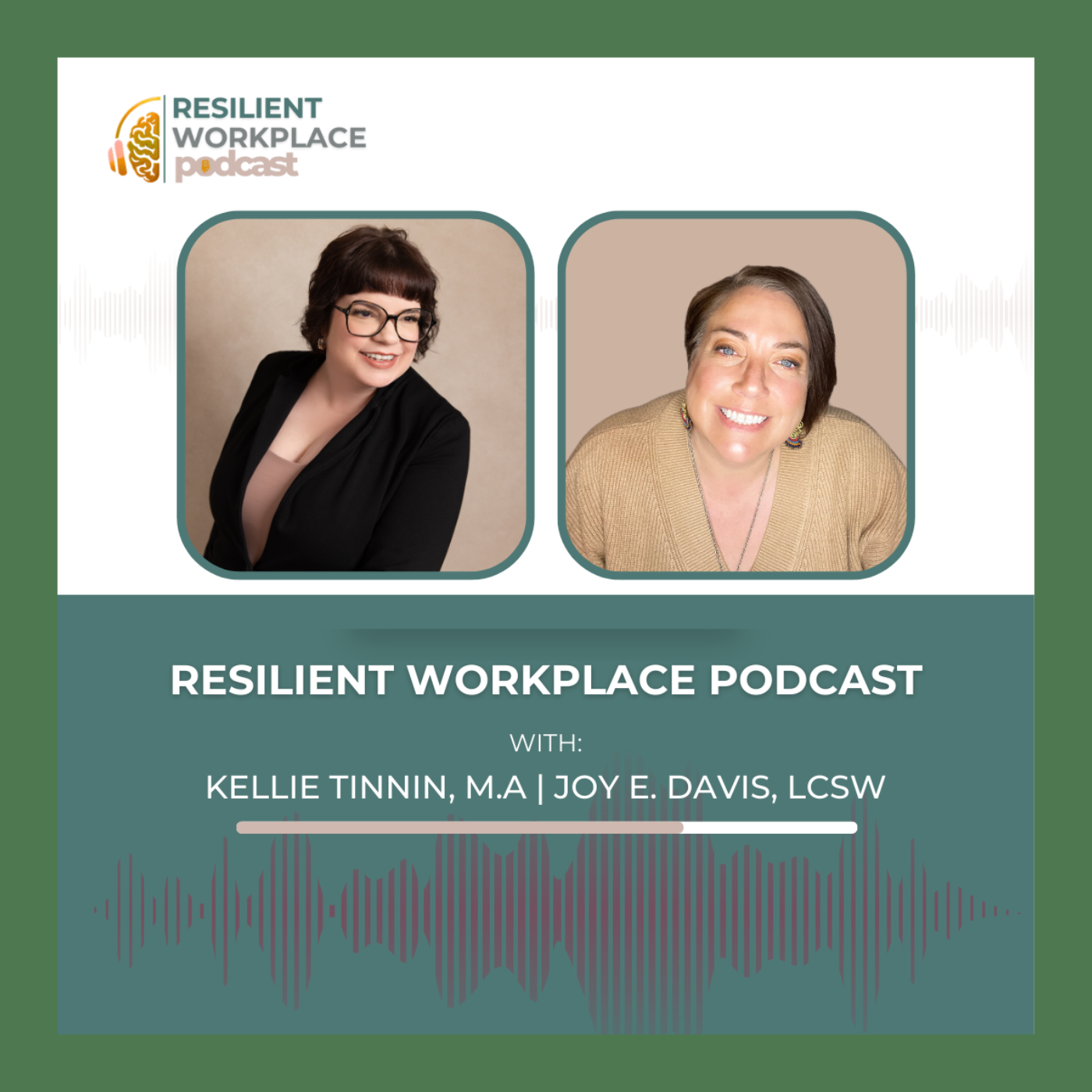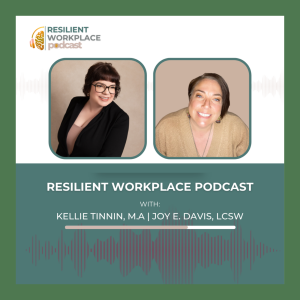
67
Downloads
8
Episodes
The Resilient Workplace Podcast is your go-to resource for navigating workplace dynamics with a people-first approach. Hosted by Joy Davis, a licensed clinical social worker, therapist, and author, alongside Kellie Tinnin, a human resource consultant and corporate trainer, this podcast blends psychology, HR expertise, and real-world strategies to help you create a thriving work environment. Each episode provides expert insights on leadership, mental well-being, and employee engagement, along with practical tools to handle workplace challenges and build resilience. You’ll also gain access to the latest research on HR trends, productivity, and work-life balance, plus an in-depth look at the psychology behind workplace behavior. Have a workplace dilemma? Send your questions via our show notes or email info@resilientworkplaceinnovations.com for a chance to be featured. Subscribe now and start building a more resilient workplace.
Episodes

Wednesday Mar 19, 2025
Episode 5 The Hybrid Workplace Strugglebus
Wednesday Mar 19, 2025
Wednesday Mar 19, 2025
The Resilient Workplace Podcast
Show Notes: Episode #5: The Hybrid Work “StruggleBus”
Date: March 19, 2025
Show Notes Episode Summary:
In today’s episode, we round out our 2024 lessons learned with a discussion about hybrid work culture and the benefits and challenges of this evolving work model. As workplaces struggle to adapt to flexible work expectations, we examine the historical context of work structures, the impact of remote work, and the mental health implications for employees and leaders.
Previous Episode Recap:
Episode #4: Culture Clashes & Burnout Battles: Unraveling Workplace Woes
• Explored how weak workplace culture contributes to disengagement and burnout.
• Examined the link between compassion fatigue and organizational challenges.
• Discussed HR strategies for fostering a healthy workplace culture.
• Highlighted leadership's role in modeling self-care to support employee well-being.
Discussion Points:
1. Hybrid Work Struggles & Outdated Work Models
• Companies failing to adapt to flexible work expectations.
• Our current work culture was shaped by the Industrial Revolution (1920s model), which has remained largely unchanged.
• The 9-5 workday, introduced by Henry Ford, was designed for economic reasons rather than employee well-being.
• With the digital revolution (1980s) and the rise of knowledge-based jobs, work structures must evolve.
• Over 52% of people today work in professional services rather than manufacturing (Source: BLS.gov).
• Over 85% of people globally own a smartphone, yet workplaces have not adapted accordingly.
2. The Rise and Reality of Remote Work
• Pre-pandemic, about 6% of the workforce worked remotely; during COVID-19, some industries saw as much as 30% working from home.
• The Federal Government is mandating a return to office, citing concerns over productivity.
• Many large corporations are following suit, despite mixed research on remote work effectiveness.
• Studies present arguments both for and against remote/hybrid work, with many employees preferring a flexible option.
3. Employee Benefits & Mental Health Considerations
• Flexibility & Work-Life Balance: Reduced commute times, fewer distractions, better perceived balance.
4. Challenges of Remote Work:
o Blurred Boundaries: Employees struggle to disconnect, leading to burnout.
o Social Isolation: Lack of spontaneous office interactions can contribute to loneliness and increased mental health concerns.
o Digital Fatigue: Increased screen time and constant virtual presence can be mentally exhausting.
o Compassion Fatigue Among Leaders: Managers navigating hybrid work often experience burnout themselves.
5. The Organizational Perspective: Productivity & Pay Structures
• Many companies equate productivity with physical presence rather than measured output.
• Employers must shift from outdated metrics to meaningful performance evaluation.
• With AI and automation reshaping industries, will pay structures change to reward output over hours worked?
Considerations for Implementing Hybrid Work
• Organizations must assess the why behind hybrid or remote models.
• Cost-saving measures (overhead reductions) often drive return-to-office mandates.
• Hybrid work may offer a balanced solution for both employees and businesses, but it requires intentional planning and cultural adaptation.
Closing Thoughts:
• Hybrid work isn’t a one-size-fits-all solution; organizations must tailor their approach to fit their needs.
• The future of work is evolving rapidly, and companies must adapt to remain competitive.
• What does the future hold for productivity, pay structures, and workplace engagement? It is to ponder.
Next Episode Teaser:
Episode #6: The Three Neuros
• Neurodivergence
• Neuropsychology
• Neuroplasticity
• Exploring how they shape the workplace experience.
Follow Us:
• Faebook: https://www.facebook.com/ResilientWorkplaceInnovations
Thank you for listening to The Resilient Workplace Podcast! Don’t forget to leave a review and subscribe for more.
References:
• Bureau of Labor Statistics: BLS.gov
• Forbes: Federal Workers Return to Office

Comments (0)
To leave or reply to comments, please download free Podbean or
No Comments
To leave or reply to comments,
please download free Podbean App.